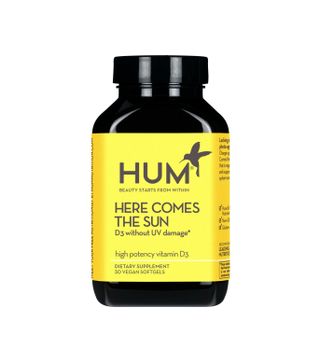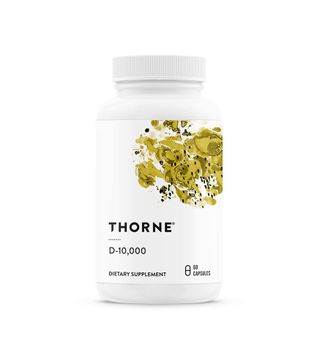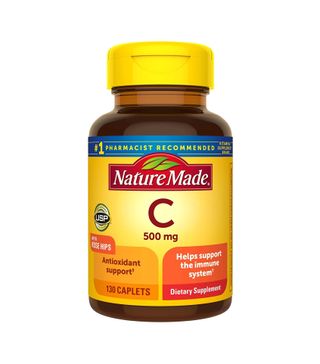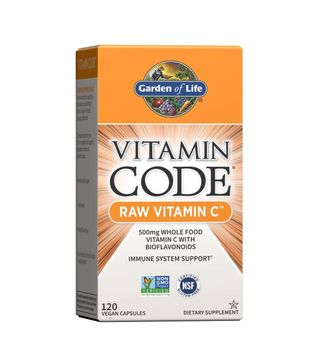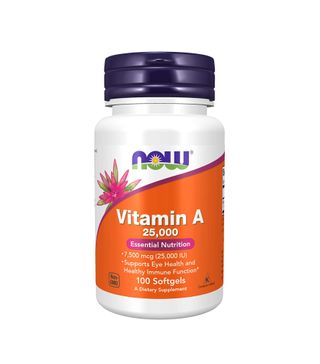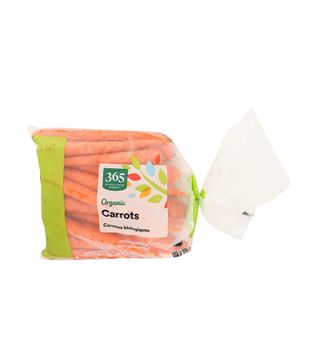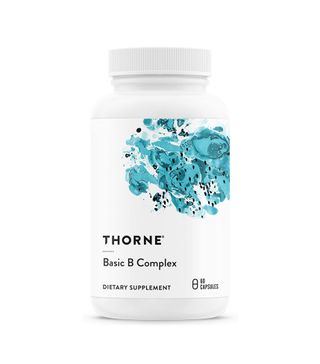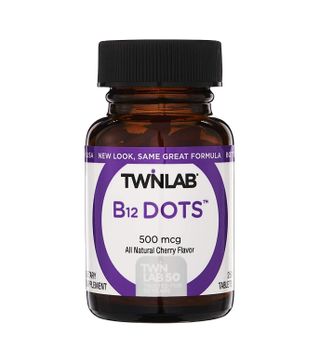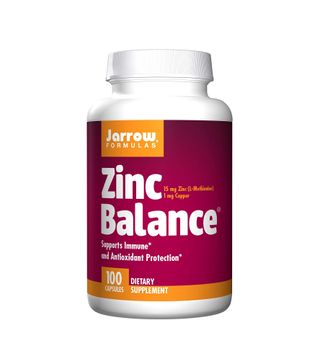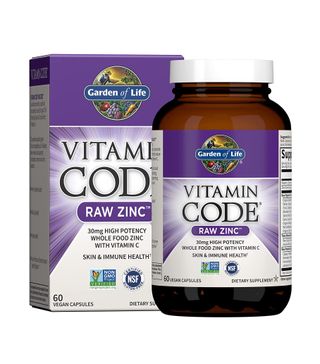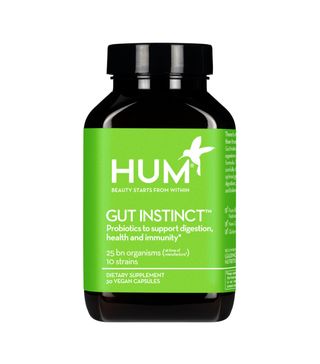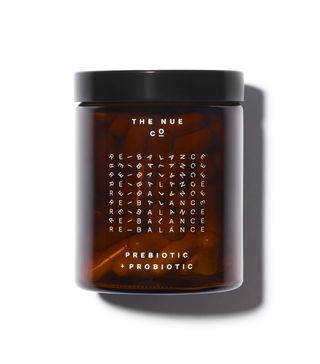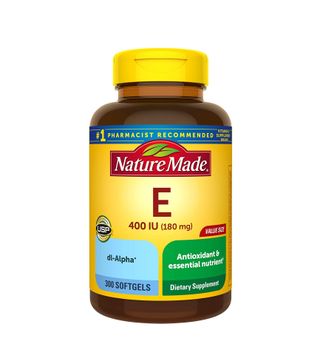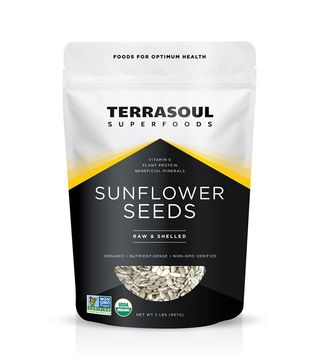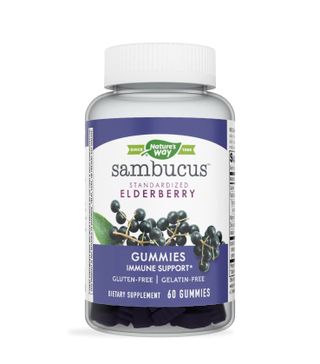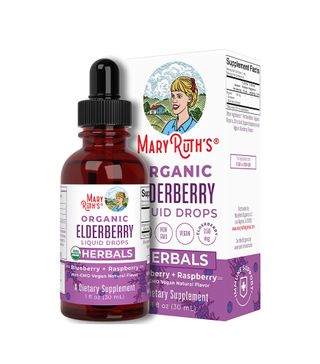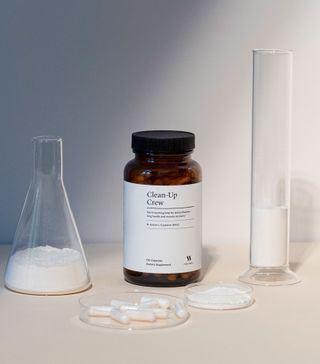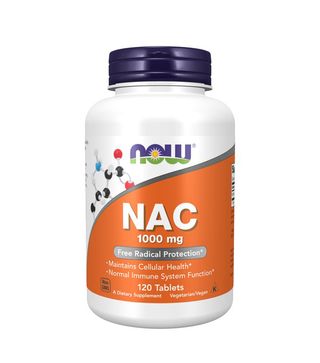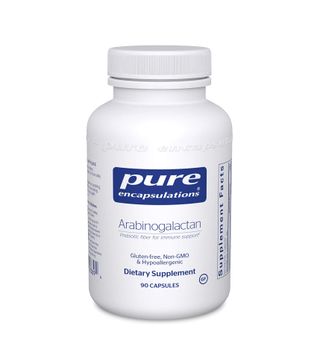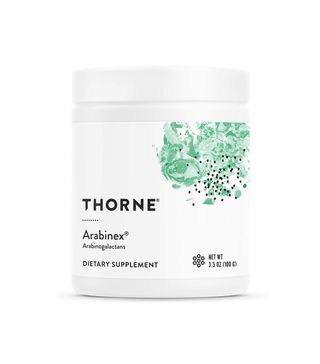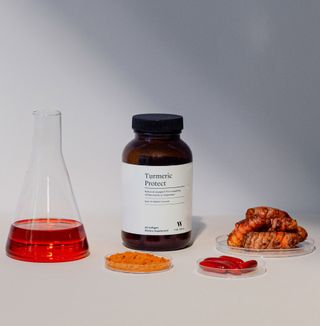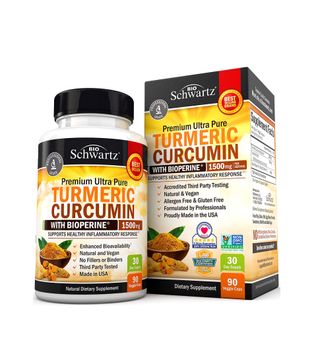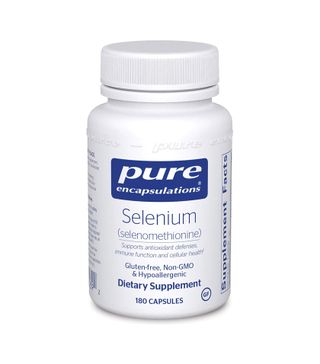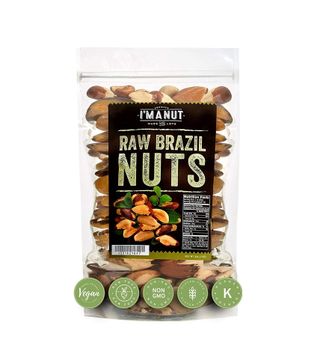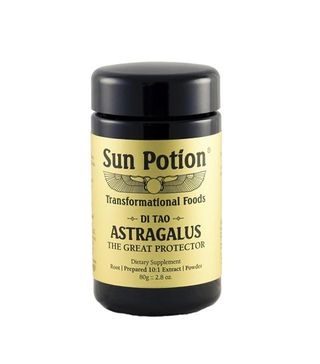These Are the Vitamins to Take for a Stronger Immune System
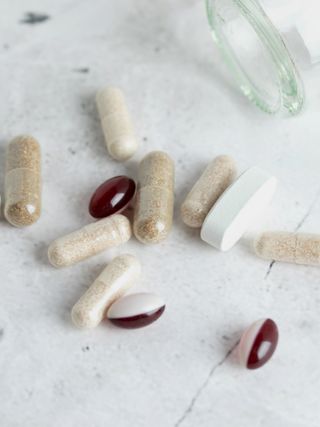
You probably know how important the state of your immune system is to your overall health. During cold and flu season, you might hear everyone talking about all the things they're doing to take care of themselves. And especially right now during a global pandemic, everyone is wondering how they can strengthen their immune system. Well, if you're asking yourself that exact question, the answer is a bit complex.
According to the Cleveland Clinic, the immune system is a network of organs, white blood cells, proteins (antibodies), and chemicals. It works to protect your body from bacteria, viruses, parasites, and fungi that cause infection and illness.
But since our bodies are different, that means our immune systems are different, too. "Signs that a person has a weak immune system is truly individual," explains Maya Feller, MS, RD, CDN, of Brooklyn-based Maya Feller Nutrition. "If you are experiencing significant systemic changes or onset of symptoms, it is important to seek out the help and guidance from your primary care provider or specialist so they can help determine the appropriate course of action."

While your body and immune system might have very specific needs, there are some general habits you can pick up to take care of yourself. A holistic approach helps since the immune system is comprised of all different parts of the body. Feller recommends starting with these four: Limiting exposure to toxins (including quitting smoking and consuming alcohol in moderation), making time for physical activity, creating and maintaining good sleep hygiene, and nourishing your body with an abundance of phytonutrient-rich vitamins and minerals.
Paying attention to your immune system should be a year-round task rather than something you just worry about during cold and flu season. "It's important to look at the immune system like a muscle—you need to train it to optimize its function," explains the chief medical officer at The Well, Frank Lipman, MD. "Especially during times like this, it is not about boosting your immune system. It's about having a well-oiled, functioning immune system so it works appropriately when needed. You don't want it to be over-functioning and potentially create a cytokine storm, but you don't want it to underperform either."
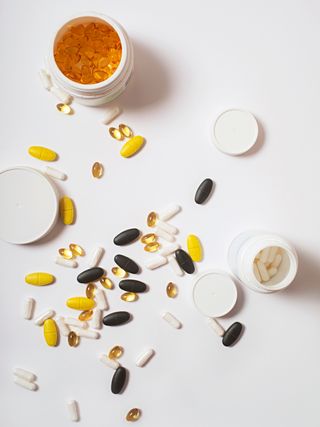
But sometimes, you can do all of the above to take care of your immune system and still need a little bit of extra help. "Supplementation can be helpful with some of the aforementioned nutrients if you are unable to get adequate amounts in the diet, are deficient, have increased needs, and/or are more susceptible to colds, viruses, etc.," says Tamar Samuels, MS, RDN, NBC-HWC, a registered dietitian, a national board–certified health and wellness coach, and co-founder of Culina Health.
Taking supplements should be your second step after incorporating healthy diet and lifestyle habits, but if you do decide to go that route, it's important to talk to your doctor, dietitian, or another healthcare professional before you start a new regimen. Some supplements might affect your preexisting conditions or any medications you're taking. Also, your doctor might even order specific tests to identify your needs and will be able to recommend personalized dosages from that. And remember to do your research when purchasing supplements—read the labels, check the recommended dosages, and look up the brands themselves.
With all of that in mind, dietitians and physicians shared some common vitamins and nutrients (and their supplement forms) that can support the immune system below.
1. Vitamin D
Vitamin D plays a role in the production and proliferation of key immune cells, and its active form helps regulate several antimicrobial proteins, adds Cara Harbstreet, MS, RD, LD, an intuitive eating registered dietitian and founder of Street Smart Nutrition.
There are few sources of vitamin D, but you can get the nutrient from certain foods like fish and egg yolks. Your body produces vitamin D through sun exposure, but this can be difficult in the winter months. Since it can be tough to get enough of it naturally, many people are deficient and need to take daily supplements.
"In general, getting vitamin D levels high is job one. Most people can start with 5000 IUs (125 mcg) a day; people with autoimmune diseases should probably start with 10,000 IUs a day," says Steven Gundry, MD, author, medical director at the International Heart and Lung Institute, and founder of GundryMD.
2. Vitamin C
This vitamin helps fight colds, ramps up antioxidant activity, and aids in the absorption of other nutrients like iron, Samuels says. "Research shows that a high vitamin C intake is associated with decreased risk of common chronic diseases, including cardiovascular disease, cancer, and certain neurological conditions," she explains. "When it comes to fighting off infections, vitamin C's immune-boosting powers are likely linked to its antioxidant properties. That is, vitamin C (which is an antioxidant itself) helps regenerate other antioxidants (like vitamin E) in the body, thereby decreasing the number of harmful free radicals that can bolster infections."
Boosting your vitamin C levels can also reduce the length of the common cold, adds Amy Shapiro, MS, RD, CDN, a registered dietitian and founder of Real Nutrition.
3. Vitamin A
"Similar to vitamin C, this nutrient can help support the function and integrity of cells in the barriers we rely on in the skin, respiratory tract, and GI tract," explains Harbstreet. "Vitamin A is also critical for T and B cell lymphocytes, which are involved in an antibody response to an antigen in the body."
Vitamin A can be found in plant foods like carrots and squash in the form of carotenoids, which are antioxidants that help fight inflammation.
4. B Vitamins
"B vitamins—particularly vitamin B6, vitamin B9 (or folic acid), and vitamin B12—support strong immune function," explains Serena Poon, CN, CHC, CHN, chef, nutritionist, Reiki master, and founder of the Culinary Alchemy program. "A deficiency of vitamin B6 is associated with a decrease in antibody production among other immune system–weakening functions. A deficiency in vitamins B9 and B12 can 'drastically alter immune responses' through a variety of processes. Vitamin B12 is solely found in animal products, so a vitamin B12 supplement is particularly important if you are a vegan or vegetarian."
5. Zinc
Samuels says that zinc is an essential mineral that must be consumed via diet and that you need to consume it daily since the body lacks the ability to store the mineral. "Zinc supports the functioning of immune cells like neutrophils and macrophages," she explains. "As a result, a zinc deficiency can lead to a higher risk of infections. You've probably seen zinc lozenges at your pharmacy. Though the research is conflicting, the nutrient is thought to potentially drive down the duration and severity of symptoms associated with the common cold by preventing the entry of the virus into cells and stopping it from multiplying in the body."
Vanessa Rissetto, MS, RD, a registered dietitian nutritionist and co-founder of Culina Health, adds that zinc can help symptoms like nasal congestion, nasal drainage, sore throat, and coughing.
6. Prebiotics and Probiotics
"The digestive system and the immune system are interconnected, and a balanced digestive system is crucial for immune function," Poon says. "Along with eating a diet rich in vegetables and fruits, adding probiotics to your diet can support your digestive tract by adding good bacteria that supports a balanced microbiome. Prebiotics are fibers that act as fuel for probiotics."
7. Vitamin E
Rissetto says that vitamin E is a powerful antioxidant that can help fight off infection. It can be found in food sources like nuts and seeds or in supplement form.
8. Elderberry
Lipman says elderberry provides potent antioxidants that support immune response. Elderberry comes in different forms, from syrups to gummies.
9. N-Acetyl Cysteine (NAC)
"This is a do-it-all supplement that supports detoxification, respiratory health, and muscle recovery after workouts," Lipman says. "NAC is a precursor to glutathione, the body's most powerful antioxidant."
10. Arabinogalactan
"This supplement comes from a natural fiber found on the larch tree, a coniferous tree that thrives in the cooler climate of the north," Poon explains. "Arabinogalactan is an incredible substance that studies have shown to be particularly useful in helping the body fight the common cold."
11. Curcumin
Curcumin is a compound found in turmeric root. Lipman says it's best known for its anti-inflammatory and antioxidant properties. It also promotes healthy aging and has benefits for the liver, joints, and eyes.
12. Selenium
"[It's] essential for immune health and may also help to prevent or reduce susceptibility to the flu. You can easily meet your needs by eating two Brazil nuts a day," Shapiro says.
13. Astragalus
"This plant has been used in Chinese medicine for thousands of years," Poon explains. "Aside from its mythical therapeutic status, astragalus has many evidence-backed benefits, including immune support, heart disease and diabetes prevention, and increasing strength and stamina."
It's important to note that people who are on immunosuppressants, anticoagulants, and diuretic medications should not take astragalus, she adds.
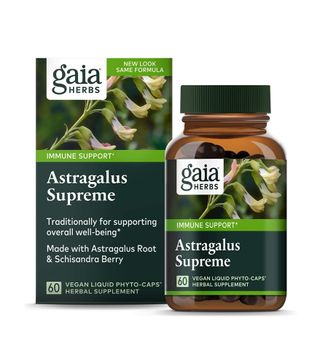
Next up: 9 Expert-Approved Vitamin Brands You Need to Know About
This article was originally published at an earlier date and has since been updated.
Disclaimer
This article is provided for informational purposes only and is not intended to be used in the place of advice of your physician or other medical professionals. You should always consult with your doctor or healthcare provider first with any health-related questions.
Sarah is lifestyle writer and editor with over 10 years of experience covering health and wellness, interior design, food, beauty, and tech. Born and raised in Los Angeles, she attended New York University and lived in New York for 12 years before returning to L.A. in 2019.
In addition to her work on THE/THIRTY and Who What Wear, she held editor roles at Apartment Therapy, Real Simple, House Beautiful, Elle Decor, and The Bump (sister site of The Knot).
She has a passion for health and wellness, but she especially loves writing about mental health. Her self-care routine consists of five things: a good workout, “me” time on the regular, an intriguing book/podcast/playlist to unwind after a long day, naps, and decorating her home.
-
 This Beauty Blogger's Wind-Down Routine Is Anything But a Snooze
This Beauty Blogger's Wind-Down Routine Is Anything But a SnoozeSee her go-to workout and her favorite vitamins.
By Virginia Yapp
-
 This Founder Shares Why We Should Start Celebrating Rest
This Founder Shares Why We Should Start Celebrating RestBurnout is nothing to be proud of.
By Kia Topps
-
 I Asked J.Lo's Trainer for His Very Best Fitness Tips
I Asked J.Lo's Trainer for His Very Best Fitness TipsGunnar Peterson has thoughts on how to get moving this season.
By Kia Topps
-
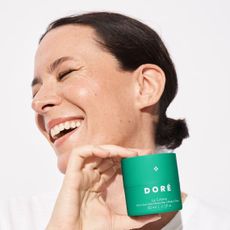 This Style Influencer Turned Founder Shares Her Favorite Ways to Start the Day
This Style Influencer Turned Founder Shares Her Favorite Ways to Start the DayA morning routine from London.
By Candice Aman
-
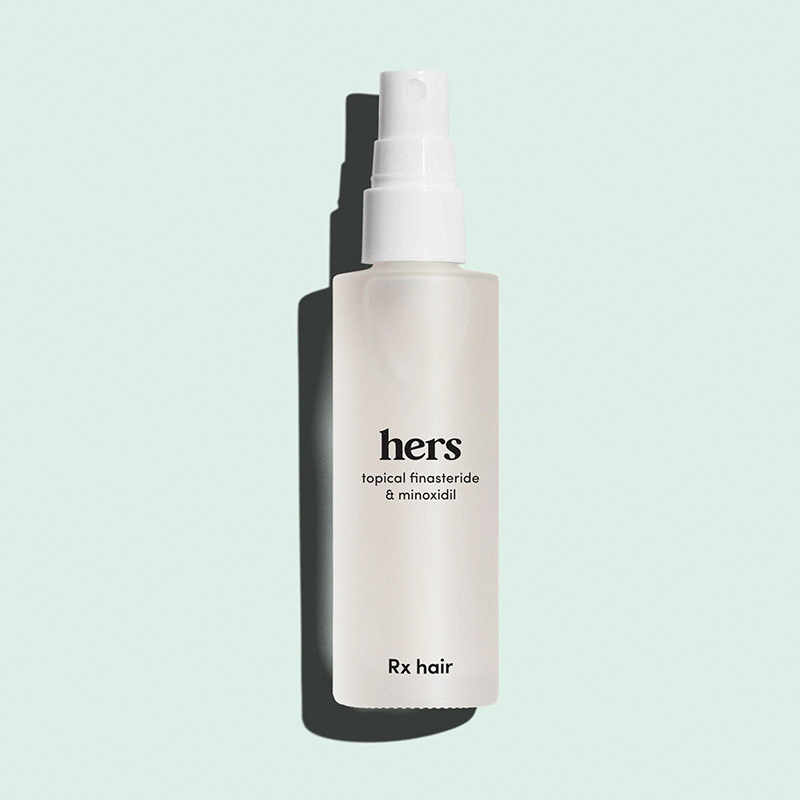 13 Products That Will Step Up Your Self-Care Game From Home
13 Products That Will Step Up Your Self-Care Game From HomeGet that glow from within.
By Natalie Gray Herder
-
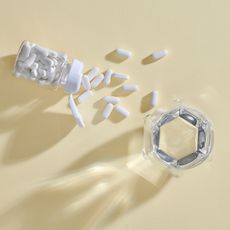 Don't Forget This Vital Ingredient When It Comes to Gut Health
Don't Forget This Vital Ingredient When It Comes to Gut HealthIt's crucial.
By Sarah Yang
-
 These 8 Foods Are the Worst for Rosacea—Here's What to Eat Instead
These 8 Foods Are the Worst for Rosacea—Here's What to Eat InsteadControl those flare-ups.
By Sarah Yang
-
 FYI: This Vitamin Affects Your Skin, Immune System, and Eye Health
FYI: This Vitamin Affects Your Skin, Immune System, and Eye HealthIt's a big deal.
By Sarah Yang
